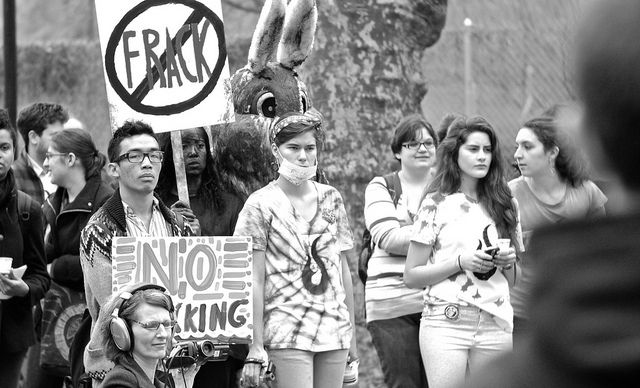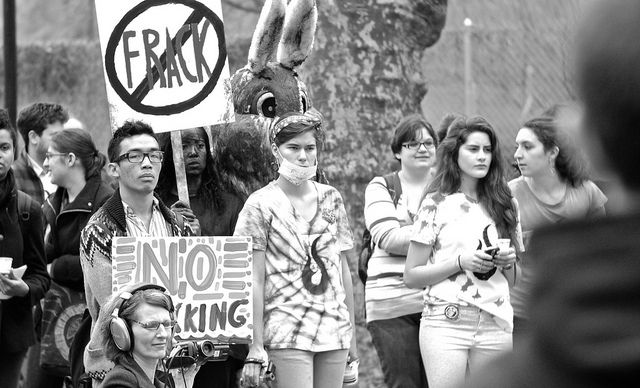Fracking safe if properly regulated
A review of the gas extraction method called ‘fracking’ has decided that the procedure can be carried out safely, according to the Royal Society and Royal Academy of Engineering.


A review of the gas extraction method called ‘fracking’ has decided that the procedure can be carried out safely, according to the Royal Society and Royal Academy of Engineering.
The process involves pumping large volumes of water and chemicals into shale deposits at high pressure, which causes a release of natural gas. .jpg)
With the procedure ready to be rolled out to half a dozen sites around the UK, the report has been eagerly anticipated. Opposition to fracking comes from environmentalists and local residents, who are concerned that fracking can cause damaging earthquakes and contaminate the local environment.
Prof Robert Mair from Cambridge University says, "Our main conclusions are that the environmental risks of hydraulic fracturing for shale can be safely managed provided there is best practice observed and provided it's enforced through strong regulation… The UK regulatory system is up to the job for the present very small scale exploration activities, but there would need to be strengthening of the regulators if the government decides to proceed with more shale gas extraction, particularly at the production stage."
The review found that: the risk of contamination to aquifers is low, as long as best practice and deep extraction takes place; earthquakes as a result of fracking are small in magnitude, and are at a lower level than the natural occurrences experienced in the UK; most contamination as a result of fracking has been due to storage of wastewater in open ponds, something which is not permitted in the UK; the naturally occurring radioactive substances emitted by fracking are well covered under current legislation.
.jpg) Despite these reassuring statements, there are certain concerns raised by the report. The wells used are an area of concern, as they are liable to cracking and seepage. Priority must therefore be given to the strength of the concrete used in these wells.
Despite these reassuring statements, there are certain concerns raised by the report. The wells used are an area of concern, as they are liable to cracking and seepage. Priority must therefore be given to the strength of the concrete used in these wells.
Recommendations from the report include monitoring requirements, spot checks and coordination between various government departments, as well as improvements in legislation.
There are of course further concerns on the usage of water, which in some areas of the country, could lead to shortages; vast quantities of water are needed for fracking. Despite these reassurances, critics are unlikely to be convinced that fracking should be the way forward for the UK. The process and the gas produced causes considerable greenhouse emissions, equivalent to conventional gas and perhaps even as much as coal. It is therefore not sustainable in the long term if the UK is to cut emissions by 80 percent. With water scarcity becoming a growing problem, fracking is likely to exacerbate the problem, as climate change takes hold and populations and water demands increase.
Image 01: emerille | Flickr
Image 02: Ruhrfisch | Wikimedia Commons
Image 03: Bosc d'Anjou | Flickr





